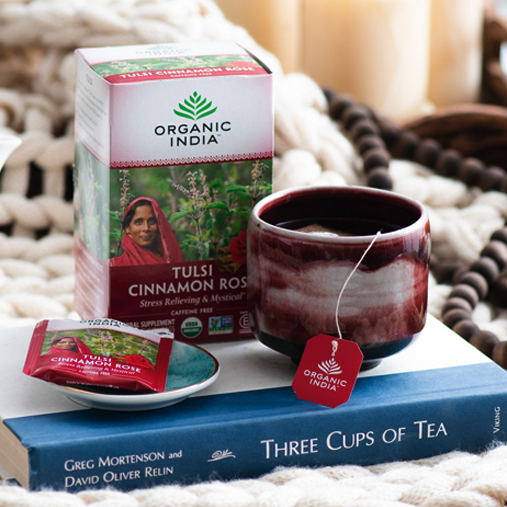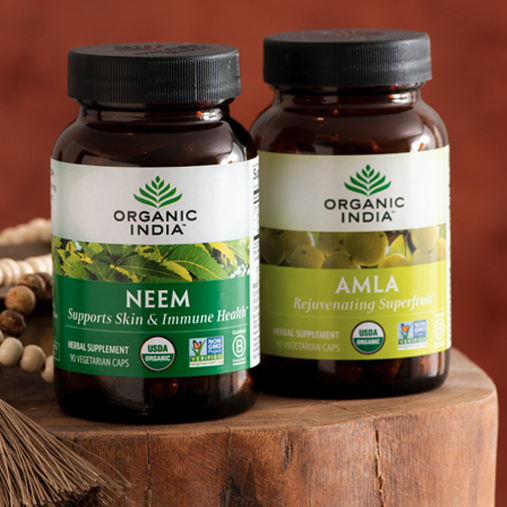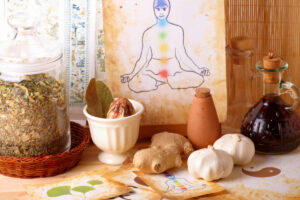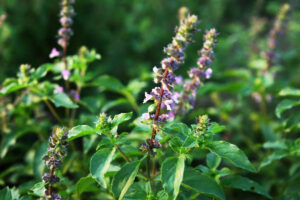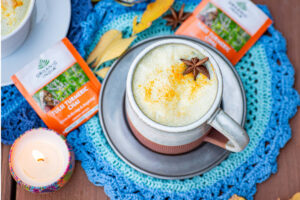Back
High-quality sleep is as essential to vibrant physical, mental, and emotional health as nutritious food, clean water, and exercise.
Yet, most of us—even the health conscious—do not prioritize sleep the same way we do food, water, and movement.
Just how bad is the problem? The data is sobering.
For example:
- 1 in 3 American adults does not get the recommended 7-9 hours of sleep per night
- Women, especially older women, tend to have more sleep-related issues than men
- And sleep-related issues are also on the rise in children and teens
Given the role sleep plays in nearly every physiological function, especially brain health, cellular repair, detoxification, and growth, we must prioritize rest.
How can we achieve this in a society that not only marginalizes the necessity of sleep but treats exhaustion like a badge of honor?
You can do many things to reset your body’s sleep cycle, discover the root causes of sleeplessness, and transform your relationship with sleep.
Various herbs for sleep can help to support healthy rest.
In this article, we’ll explore 7 of the dreamiest herbs to help you fall asleep, stay asleep, and wake up feeling rested.

An Ayurvedic Perspective on Sleep Issues
Sleep should come as naturally as any other bodily function. Yet, millions of people struggle to fall asleep, stay asleep, or wake up feeling truly rested.
The causes behind sleep issues are vast, ranging from too much screen time to hormonal imbalances, mental health issues, to persistent stress, and many others.
In Ayurveda, sleep issues are viewed through the lens of imbalances within the Doshas (Vata, Pitta, Kapha).
For example:
- Vata types tend to sleep light and awaken during the night but require more sleep than others.
- Pitta types typically have trouble falling asleep as their minds become active and creative around 10:00 PM. They usually require moderate amounts of sleep.
- Kapha types are usually deep sleepers who struggle with getting too much sleep yet may not feel rested. Despite their sleep genius, Kaphas need less sleep than Pitta or Vata types.
As you probably guessed, sleep issues tend to stem from an imbalance in Vata or Pitta energy.
Sleeplessness can also result from or exacerbated by poor sleep hygiene, such as:
- Engaging in stimulating activities before bed,
- A lack of bedtime routine,
- Or even sleeping in a room that’s too hot.
Next, we’ll explore some of the dreamiest herbs used in Ayurveda and Western herbalism to bring balance and support a good night’s rest.
Top 7 Dreamiest Herbs for Sleep
All the herbs for sleep discussed here are non-habit forming and help to support your body’s natural sleep cycle and stress response.*
1. Chamomile
Chamomile tea is one of the most recognizable and beloved Western herbal concoctions for sleep.
Several studies have shown Chamomile may possess a sedative effect, which may help support high-quality sleep, relaxation, and a feeling of calm.
Although more research is needed, scientists believe the flavonoid apigenin, found in Chamomile flowers, may be responsible for Chamomile’s sleep-supportive benefits.
Chamomile is available in tinctures, essential oils, and teas, such as Organic India’s Tulsi Honey Chamomile.

2. Ashwagandha
Ashwagandha, also known as Indian Ginseng, has a reputation for supporting energy and stamina.*
However, it’s also an excellent sleep aid as it helps balance Vata Pitta energy, while its adaptogenic properties support a balance of energy during the day and sleep at night.
High-quality studies have shown Ashwagandha may support various aspects of sleep, including:
- Sleep duration
- Sleep quality
- Sleep efficiency
- Mental alertness upon waking
- Sleep latency (the time it takes to fall asleep)
- Wake after sleep onset
The best time of day to take Ashwagandha depends on the individual.
Some people will benefit from taking it morning and afternoon, while others will benefit from a larger dose before bed.
Talk to your practitioner about the best time to take Ashwagandha for sleep.
3. Amla, aka Indian Gooseberry
Amla, also known as Amla Berry or Indian Gooseberry, is considered an Ayurvedic superfood and cosmetic ingredient.
Amla is considered a Rasayana in Ayurveda, a tonic-like herb that supports longevity, health, and vitality.
Rich in antioxidants, like vitamin C, and various flavonoids and polyphenols, this bright red sweet and sour berry is traditionally used in Ayurveda to support:
- Immunity
- Hair, skin, and nails
- Cellular function
- Heart and cardiovascular function
- Digestion
- And healthy sleep*
Studies have begun to validate Amla’s traditional use for sleep, showing it helps support a calm state of mind, reduces stress, and may have cognitive health benefits.
It’s also been shown to be potentially effective for occasional heartburn and reflux, which can interfere with sleep.
More research is needed to understand the traditional uses of Amla for sleep.
However, its rich history in Ayurveda, coupled with emerging research, suggests it may help support sleep.
Dig deeper into Amla’s benefits in: Amla: An Ayurvedic Superfood.
4. Tulsi (Holy Basil)
Tulsi is foundational in many Ayurvedic herbal formulas for sleep.
Also known as “liquid yoga” due to its calming effects, Tulsi is considered one of the ultimate adaptogens (herbs that help the body thrive under stress) and nervines (herbs that support the nervous system).
Emerging research has also shown that Tulsi may effectively support sleep quality via its beneficial effects on stress.
Organic, regeneratively-grown, fair-trade Tulsi is at the heart of Organic India’s formulas, including Peaceful Sleep capsules and Tulsi Sleep tea.
Learn more about the benefits of Tulsi/Holy Basil in:
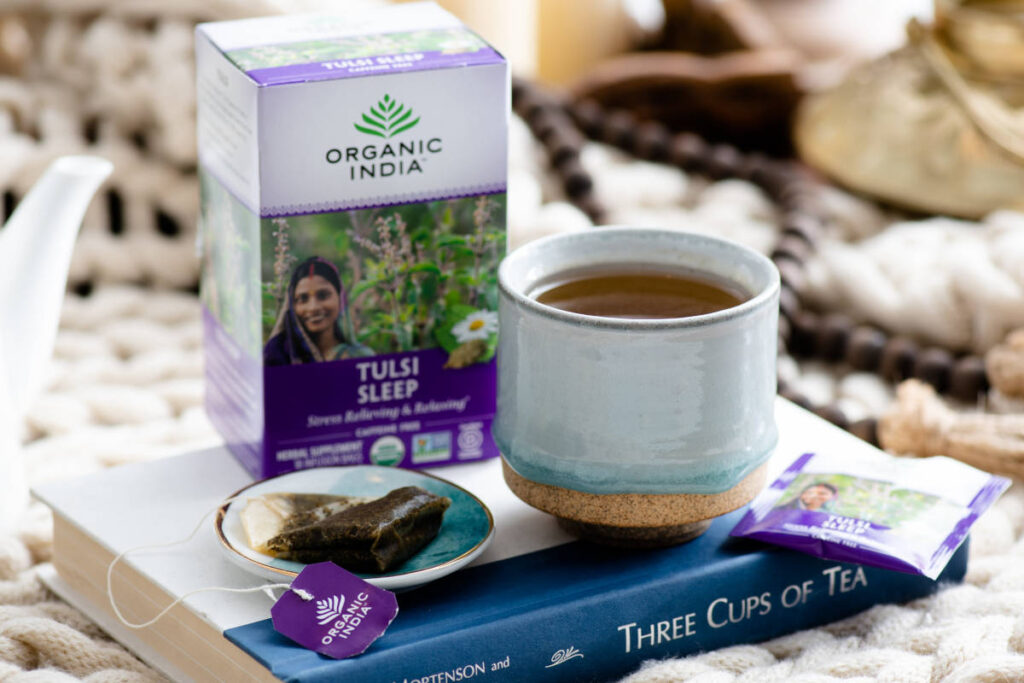
5. Gotu Kola (Brahmi)
Gotu Kola is often called “a pharmacy in one herb” or “herb of longevity” in Ayurveda.
Gotu Kola is an adaptogen (an herb or substance that helps the body adapt to stress) and a nootropic (an herb or substance that supports brain health).
It is considered sacred in India, where it’s known as a Brahmi herb for its ability to awaken spiritual perception.
Insofar as sleep is concerned, traditional Ayurvedic practitioners have used Gotu Kola as an adaptogen to promote healthy sleep, calm the nerves, and support normal stress response.
Research has shown Gotu Kola may support normal nitric oxide production, which helps protect the brain during sleep deprivation.
It’s also been shown to possibly support normal GABA production in the brain, a neurotransmitter involved with sleep, stress, and feelings of well-being.
More research is needed to understand the rich chemical makeup of Gotu Kola and its benefits.
You can find Gotu Kola in various Ayurvedic formulas targeting sleep and brain function, including Organic India’s Peaceful Sleep capsules.
6. Passionflower
Passionflower, a beautiful vine with purple flowers found in fields across the Eastern United States, has long been used in traditional herbalism to promote relaxation and sleep.
This nervine herb is often taken as a tea and has been shown to promote normal sleep in subjective studies. It’s also been studied for its effects on supporting GABA, which plays a significant role in stress and a person’s ability to relax.
More research is needed, but emerging studies appear promising.
Passionflower tea is widely available as a single-herb tea or combined with other sleep-supportive herbs such as Chamomile, Lavender, or Lemon Balm.
7. Lemon Balm
Lemon Balm can be found growing in nearly any climate across North America.
Known for its lemony flavor and soothing nature, Lemon Balm is a celebrated nootropic and nervine herb known to support relaxation, brain function, and optimism.
It’s also commonly recommended in Western herbalism to help support healthy sleep and ease stress.
Emerging research suggests Lemon Balm may live up to its reputation.
One study investigating the effects of Lemon Balm and Valerian on sleep in menopausal women showed the plant compound in Lemon Balm, rosmarinic acid, may be responsible for its sleep benefits.
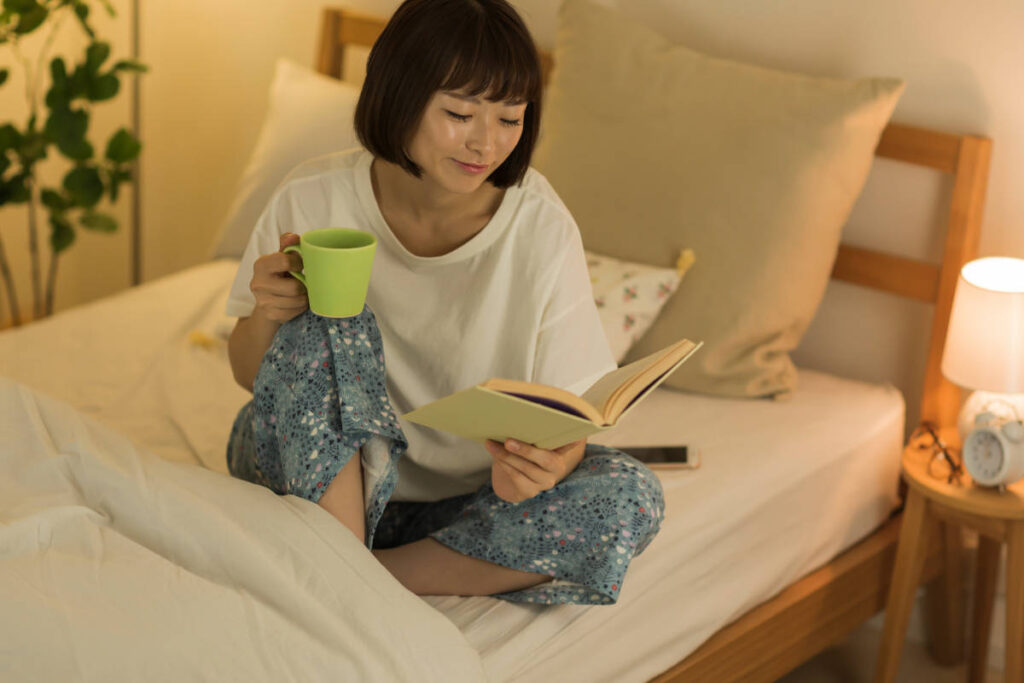
How to Choose the Best Herbs to Help you Sleep
Herbs can be excellent sleep aids because they are non-habit forming and generally very safe to take.
The best herbs to help you sleep depend on what’s causing your sleep issues, your current state of health, and your season of life.
For example, an adaptogen like Ashwagandha, Tulsi, or Gotu Kola may do the trick if you think stress is behind it.
Whereas if you’re prone to feeling nervous before bed, a nervine tea made with Lemon Balm or Chamomile may prove very useful.
It often takes some experimenting to discover which herb, or combination of herbs, will work best for you and your season of life.
Organic India offers a variety of Ayurvedic herbal formulas to support normal sleep, including:
- Peaceful Sleep Capsules: With Gotu Kola, Ashwagandha, and Tulsi (Holy Basil), this non-sedative formula helps ease stress while promoting normal nervous system function and relaxation.
- Tulsi Sleep Tea: A warming brew with relaxing Tulsi, calming Chamomile, and stress-relieving Ashwagandha.
Finally, if your sleep problems do not resolve, talk to your doctor or healthcare practitioner about the best combination of diet, lifestyle, and herbs to reset your sleep cycle.

